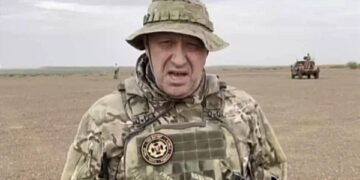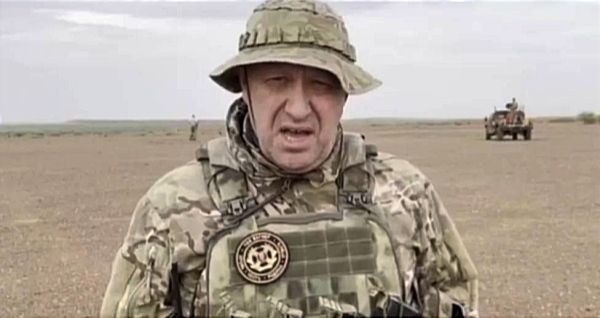By John Ikani
Wagner chief Yevgeny Prigozhin has made his first video appearance since his failed rebellion in Russia.
The new video indicates he is at an undisclosed location in Africa.
The video, shared via Telegram channels associated with the Wagner mercenary group, displays Prigozhin donned in combat attire, asserting that the organization is contributing to “a more liberated Africa”.
Wagner, reputed to possess thousands of combatants on the continent, where it has profitable business concerns.
Prigozhin’s troops are deployed in nations such as Mali and the Central African Republic (CAR), where human rights organizations and the United Nations indict them for engaging in acts of warfare that breach international law.
Last month, the United Kingdom enforced sanctions on the two leaders of Wagner’s CAR operations, attributing to them allegations of torture and the unjust killing of civilians.
American authorities have also accused Wagner fighters of exploiting unauthorized gold transactions on the continent.
Within the video, Prigozhin comments that Wagner is both prospecting for minerals and battling Islamist insurgents and other criminal entities.
“We’re operational. With temperatures soaring to +50 degrees, all is proceeding as preferred. Wagner PMC is actively conducting reconnaissance and search missions, promoting Russia’s influence across various continents, and fostering greater freedom in Africa,” conveys Prigozhin audibly.
“Through justice and contentment, we are engineering hardship for African citizens, rendering ISIS (Islamic State), Al-Qaeda, and other criminal factions powerless.”
He discloses that Wagner is actively recruiting, affirming the group’s commitment to “upholding the goals that were set – we vowed to succeed.”
Prigozhin was captured in a photograph in St. Petersburg during last month’s Africa-Russia summit, engaging in a handshake with Ambassador Freddy Mapouka, a presidential advisor from CAR.
Prigozhin has largely maintained a discreet public profile since leading his brief-lived insurrection in June, which endured a mere 24 hours.
Around 5,000 Wagner troops took control of the southern Russian city of Rostov-on-Don and advanced towards Moscow, ostensibly to replace the military leadership.
Yet, Prigozhin terminated the progression following negotiations with the Kremlin, facilitated by Belarusian leader Alexander Lukashenko.
In accordance with the terms that resolved the uprising, charges against Prigozhin were dismissed, and he was presented with an option to relocate to Belarus.
Heated discord between Wagner and Russia’s defense ministry was extensively publicized due to differing strategies in warfare. Prigozhin repeatedly accused the ministry of neglecting to furnish his group with sufficient ammunition.
Prigozhin asserts that he founded the Wagner group in 2014. A prosperous entrepreneur with a criminal history, Prigozhin is recognized as “Putin’s chef” because of his role in catering services for the Kremlin.
In 2014, Wagner began providing support for pro-Russian separatist forces in eastern Ukraine, potentially aiding Russia’s annexation of Crimea.
Prior to the conflict in Ukraine, Wagner was estimated to comprise 5,000 fighters, primarily consisting of veterans from Russia’s elite divisions and special forces.
However, Prigozhin declared last June that the organization’s membership had surged since the outset of the Ukrainian conflict, now encompassing 25,000 combatants.




































